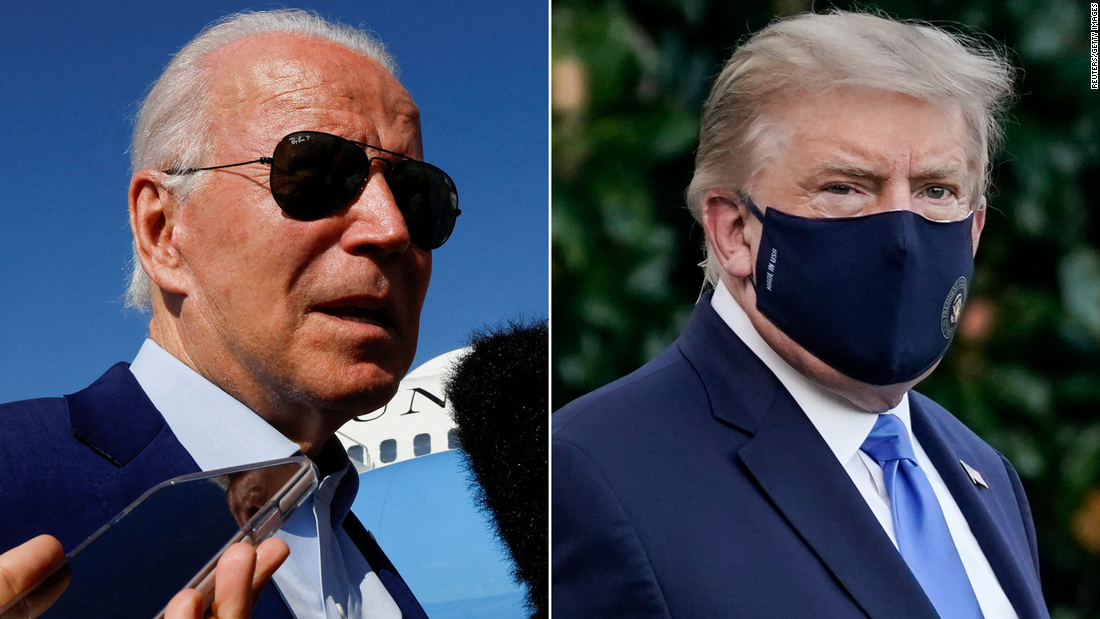His illness in this time of vaccines and new treatments provides a sharp contrast to the situation former President Donald Trump faced when, in early October 2020, just a month before the presidential election, he, too, was diagnosed with the disease. His condition is thought by many experts to have been much more worrisome than his staff let on at the time, a posture abetted by Trump’s stiff upper lip and insistence he was “doing very well.”
Leaving to others a consideration of the two men’s comparatively different governing styles as well as their levels of apparent faith in scientific facts, their illnesses, just 21 months apart, provide an excellent opportunity to compare the available medical options as well as the frustrations presented by a new disease in its first months to a much better-studied disease well into its third year.
There are three main differences between these two presidents’ experiences with the disease.
First and foremost is the availability of multiple vaccines, which were in clinical trials and not yet accessible to Trump in the autumn of 2020. Unlike the vaccinated Biden, his predecessor had no immunity to the virus, which put him at substantially higher risk for severe illness. Biden’s vaccinations place him in a group at extremely low risk for serious infection, even for a person in his late 70s. .
Whether you believe that Trump was sicker than he initially acknowledged when he contracted the virus, or he was simply getting the presidential treatment, early intervention may have made all the difference for him. The treatment he received undoubtedly helped him — and anyone else fortunate to receive the Covid-19 “cocktail,” which was a major advance at that time. In October 2020, this “cocktail” included intravenous monoclonal antibody therapy, corticosteroids (dexamethasone) and remdesivir, an intravenous antiviral drug.
In contrast, Biden has access to Paxlovid, a newer antiviral oral medication that is taken twice daily for five days. The largest advantage that Biden has, though, is his vaccination status: he is twice vaccinated and twice boosted.
Next is the physical condition of each man at the time of his diagnosis. Trump was 74 years old in late 2020, more than five years younger than Biden is now; with each passing year, the risk of severe illness increases, even among the vaccinated. We do not know much about Trump’s overall fitness or whether he has any comorbidities, other than that he is overweight, which is a well-known risk for a worse outcome from Covid-19. Biden has no publicly known comorbid conditions that would predispose him to a more serious infection (though we do know that Biden was taking medication meant to lower cholesterol as well as medicine to prevent blood clots which could have an impact on his health). On balance, I see no clear advantage to either president based on their overall health.
Finally, the virus of October 2020 was a different variant than the one circulating now. Though we do not know which variants infected either president (we may find out in Biden’s case in the coming days), the dominant variant in the US at the time of Trump’s infection was the original strain, which many experts think caused severe disease due to intrinsic virulence (exacerbated by a lack of vaccines), leading to the astonishing first wave of deaths and hospitalizations.
In contrast, the current dominant strain is Omicron subvariant BA.5, which is more transmissible than the original virus from 2020. But it’s not yet clear how BA.5 measures up in terms of the severity of disease it causes, and until that is better understood, it’s impossible to compare Trump’s experience to Biden’s.
Looking at the big picture, 2022 is a much better time to develop the disease than was 2020. Biden’s 21-second
video, shot soon after his diagnosis was announced shows him speaking long, relaxed sentences — not the sort of huffing and puffing one can see in someone with a severe respiratory infection.
However, though the odds for a good outcome are heavily in Biden’s favor, the sad truth about prediction models is that they are wonderful for anticipating how large groups of people will fare but can only deliver a “likelihood” to the individual patient.
And, as we have learned throughout the pandemic, a likelihood, though reassuring, is not the same as a promise. As a doctor, I always tell patients that I am hoping they have the most boring disease course possible. This, too, is my wish for Biden: Mr. President, here is hoping for a super boring next few days.
